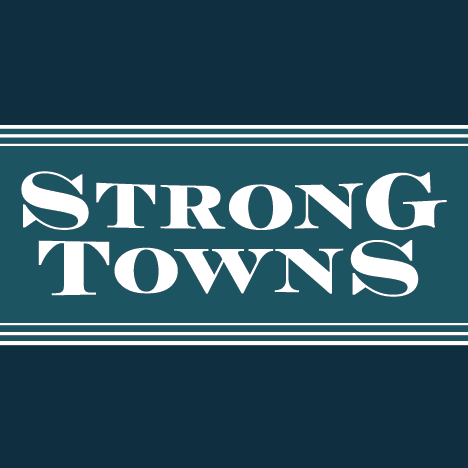Ask Strong Towns #4 (June 2018)
Podcast: The Strong Towns PodcastPublished On: Thu Jul 05 2018
Description: Every month, we host Ask Strong Towns to give you a chance to ask your burning questions about our vision for change, and how the Strong Towns approach might apply in your unique place. The live Ask Strong Towns webcast is open to all Strong Towns members, but afterward, we share the audio on our podcast. Below you'll find that audio, with a conversation led by Strong Towns staff members, Chuck Marohn and Kea Wilson. In this episode, Chuck and Kea discuss several audience-submitted questions on topics ranging from from parking minimums to density to how young people can help build Strong Towns Here are the questions discussed in this episode: What are some of the arguments you’ve heard over the years “for” parking minimums (i.e. leaving it the way we’ve always done it), rather than moving towards a parking maximum model? If I'm going in front of elected officials to lobby for a change, what arguments should I anticipate and how should I answer them? If a city has large green- or gray-field lots, what can it do to promote fine-grained development in these places, especially in climates where developers are hungry to build the biggest project they can? When talking to policymakers, how can you shift the conversation away from the overly simple "all density is good density" and towards adding value through a broader set of solutions, like mixed use development, multi-story buildings, limited parking, infill development, etc.? I go to college a few hours from my home, and my home is immediately outside of the principal city in my region. What can I do during my college years to stay involved in a city I don't live in at all during the year, but that I intend to move into after my career? What do you think of special “District” initiatives, the "Cultural Innovation District" in New Orleans? As a young(ish) engineer who subscribes to Strong Towns ideas and wants to make a difference in his home town, would you recommend that I pursue a planning degree in addition to my civil engineering degree, especially if I have a chance to work in city government? People in our small town tend to be very engaged and hold strong opinions. Big community issues can turn nasty, especially now with social media. Any suggestions on how to engage civil discourse without personal attacks? Our town is embarking on a large development project in the core of downtown financed via a Tax Increment Financing. The short version of the explanation we got from our Town Council is that the tax revenue generated from the new project will be set aside to fund the project. Doesn't TIF = debt? What questions would help enlighten our taxpayers?
The note was deleted
The note was saved
Your message was sent
